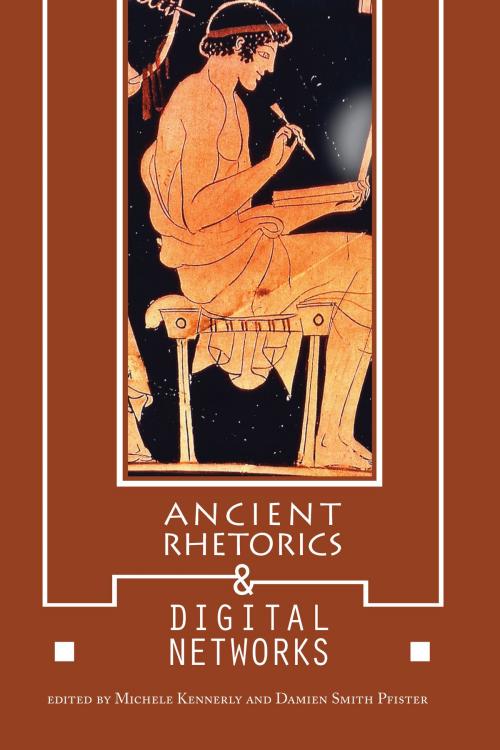Ancient Rhetorics and Digital Networks
Nonfiction, Reference & Language, Language Arts, Public Speaking, Rhetoric, Communication| Author: | Michele Kennerly, Damien Smith Pfister, Scott Haden Church, Nathan Crick, Rosa A. Eberly, Christopher J. Gilbert, E. Johanna Hartelius, Ekaterina V. Haskins, Gaines S. Hubbell, Jeremy David Johnson, Michele Kennerly, Arabella Lyon, Mari Lee Mifsud, Carolyn R. Miller, Damien Smith Pfister, Scott R. Stroud | ISBN: | 9780817391577 |
| Publisher: | University of Alabama Press | Publication: | February 13, 2018 |
| Imprint: | University Alabama Press | Language: | English |
| Author: | Michele Kennerly, Damien Smith Pfister, Scott Haden Church, Nathan Crick, Rosa A. Eberly, Christopher J. Gilbert, E. Johanna Hartelius, Ekaterina V. Haskins, Gaines S. Hubbell, Jeremy David Johnson, Michele Kennerly, Arabella Lyon, Mari Lee Mifsud, Carolyn R. Miller, Damien Smith Pfister, Scott R. Stroud |
| ISBN: | 9780817391577 |
| Publisher: | University of Alabama Press |
| Publication: | February 13, 2018 |
| Imprint: | University Alabama Press |
| Language: | English |
An examination of two seemingly incongruous areas of study: classical models of argumentation and modern modes of digital communication
What can ancient rhetorical theory possibly tell us about the role of new digital media technologies in contemporary public culture? Some central issues we currently deal with—making sense of information abundance, persuading others in our social network, navigating new media ecologies, and shaping broader cultural currents—also pressed upon the ancients.
Ancient Rhetorics and Digital Networks makes this connection explicit, reexamining key figures, texts, concepts, and sensibilities from ancient rhetoric in light of the glow of digital networks, or, ordered conversely, surveying the angles and tangles of digital networks from viewpoints afforded by ancient rhetoric. By providing an orientation grounded in ancient rhetorics, this collection simultaneously historicizes contemporary developments and reenergizes ancient rhetorical vocabularies.
Contributors engage with a variety of digital phenomena including remix, big data, identity and anonymity, memes and virals, visual images, decorum, and networking. Taken together, the essays in Ancient Rhetorics and Digital Networks help us to understand and navigate some of the fundamental communicative issues we deal with today.
An examination of two seemingly incongruous areas of study: classical models of argumentation and modern modes of digital communication
What can ancient rhetorical theory possibly tell us about the role of new digital media technologies in contemporary public culture? Some central issues we currently deal with—making sense of information abundance, persuading others in our social network, navigating new media ecologies, and shaping broader cultural currents—also pressed upon the ancients.
Ancient Rhetorics and Digital Networks makes this connection explicit, reexamining key figures, texts, concepts, and sensibilities from ancient rhetoric in light of the glow of digital networks, or, ordered conversely, surveying the angles and tangles of digital networks from viewpoints afforded by ancient rhetoric. By providing an orientation grounded in ancient rhetorics, this collection simultaneously historicizes contemporary developments and reenergizes ancient rhetorical vocabularies.
Contributors engage with a variety of digital phenomena including remix, big data, identity and anonymity, memes and virals, visual images, decorum, and networking. Taken together, the essays in Ancient Rhetorics and Digital Networks help us to understand and navigate some of the fundamental communicative issues we deal with today.















